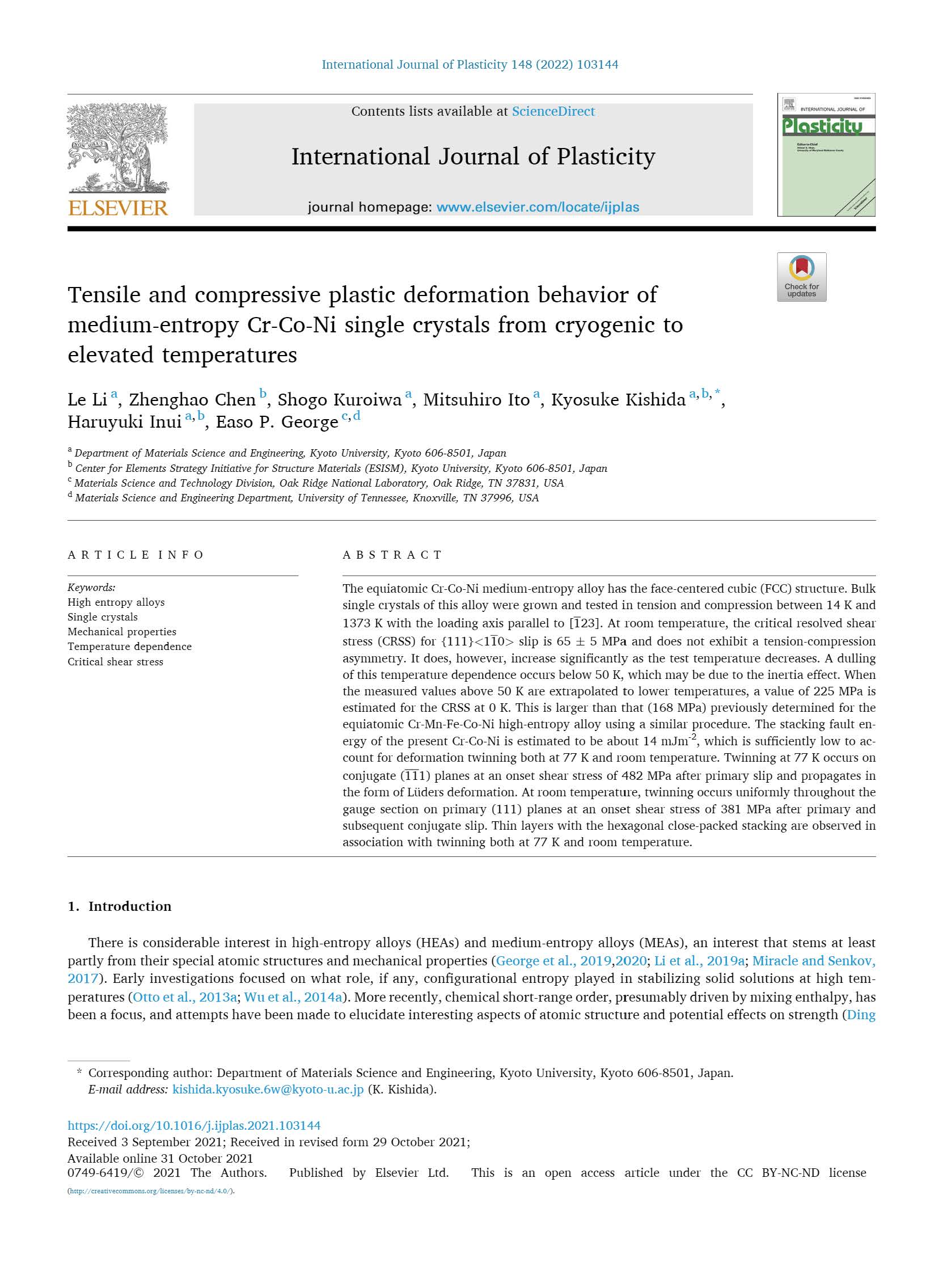Tensile and compressive plastic deformation behavior of medium-entropy Cr-Co-Ni single crystals from cryogenic to elevated temperatures
International Journal of Plasticity, 148 (2022) 103144. DOI: https://doi.org/10.1016/j.ijplas.2021.103144研究論文概要
The equiatomic Cr-Co-Ni medium-entropy alloy has the face-centered cubic (FCC) structure. Bulk single crystals of this alloy were grown and tested in tension and compression between 14 K and 1373 K with the loading axis parallel to [1¯23]. At room temperature, the critical resolved shear stress (CRSS) for {111}<11¯0> slip is 65 ± 5 MPa and does not exhibit a tension-compression asymmetry. It does, however, increase significantly as the test temperature decreases. A dulling of this temperature dependence occurs below 50 K, which may be due to the inertia effect. When the measured values above 50 K are extrapolated to lower temperatures, a value of 225 MPa is estimated for the CRSS at 0 K. This is larger than that (168 MPa) previously determined for the equiatomic Cr-Mn-Fe-Co-Ni high-entropy alloy using a similar procedure. The stacking fault energy of the present Cr-Co-Ni is estimated to be about 14 mJm-2, which is sufficiently low to account for deformation twinning both at 77 K and room temperature. Twinning at 77 K occurs on conjugate (1¯1¯1) planes at an onset shear stress of 482 MPa after primary slip and propagates in the form of Lüders deformation. At room temperature, twinning occurs uniformly throughout the gauge section on primary (111) planes at an onset shear stress of 381 MPa after primary and subsequent conjugate slip. Thin layers with the hexagonal close-packed stacking are observed in association with twinning both at 77 K and room temperature.
